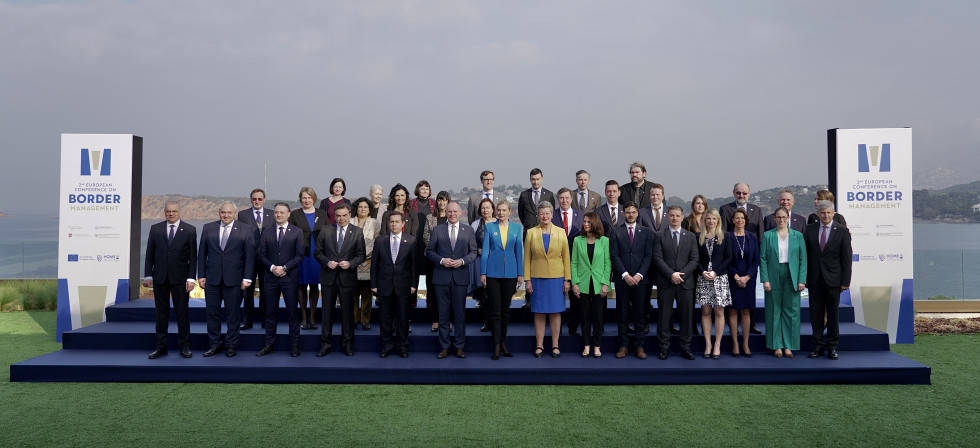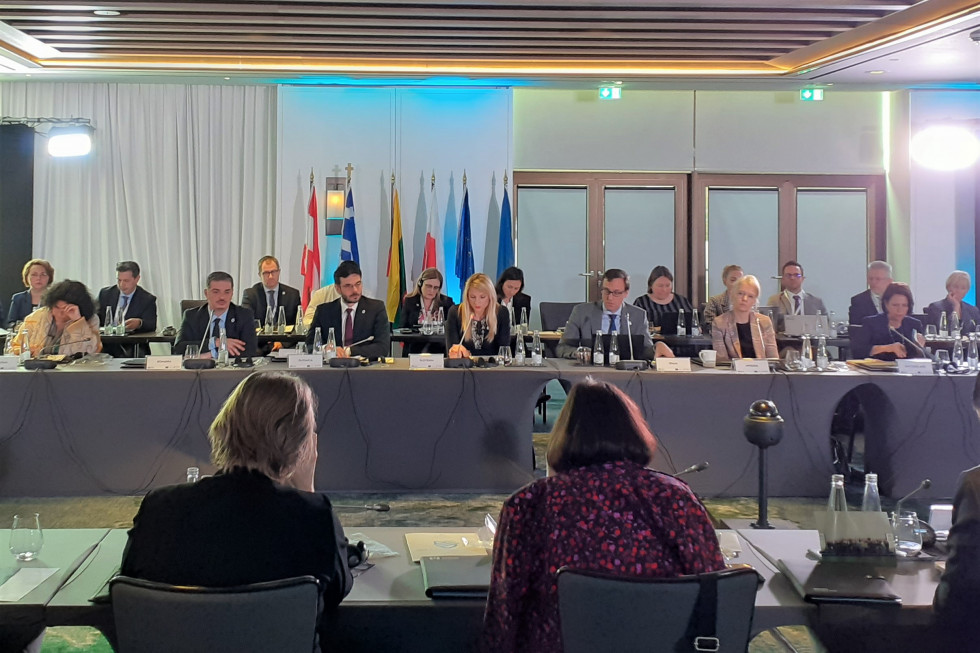State Secretary Heferle attends the European Conference on Border Management in Athens
As the war in Ukraine entered its second year, the conference began by the participants expressing their full solidarity with Ukraine and its people. Slovenia has been and remains a staunch supporter of Ukraine.
In 2022, the EU as a whole saw a marked increase in irregular migration flows across the Mediterranean, and in particular across the Western Balkan region, as well as persistent pressure on its eastern external borders. This places a heavy burden on the member states along the external border. State Secretary Tina Heferle called for better monitoring and anticipation of migration flows into the EU, and stressed the need to ensure that people entering the EU are properly registered. “Slovenia is aware that the member states at the EU's external borders are working hard to ensure that the border is effectively protected, and that they must be assisted with the appropriate resources and measures.” Frontex has an important role to play here, but it will only be able to carry out its core tasks effectively if member states provide it with the right conditions to do so. However, she expressed her reservation as to the erection of fences being an appropriate solution to help prevent illegal migration in the long term.
As the renewed second-generation Schengen Information System (SIS II), which will make an important contribution to ensuring internal security in the EU, will become operational in March 2023, the State Secretary stressed that this system will only fully function if Bulgaria and Romania become full members of the Schengen area as soon as possible and thus start using all its new functionalities.
Ms Heferle also stressed the importance of effectively returning to their countries of origin all third-country nationals who do not have the right to stay in the EU, while respecting their human rights. She expects the European Commission and the European External Action Service to engage proactively in the return process.

Group photo | Author Ministrstvo za notranje zadeve
Background
Organised by Austria, Greece, Lithuania and Poland, the conference was held for the first time in Lithuania in January 2022, in the light of the instrumentalisation of migration by Belarus and the resulting increased pressure on the eastern part of the EU's external border, which required joint action by EU member states. This year, the conference is hosted by the Greek Minister of Migration and Asylum in Athens from 23 to 24 February. EU member states and Schengen associated countries, the European Commission, EU agencies (Frontex, Europol and the EU Asylum Agency) and the International Centre for Migration Policy Development are invited to attend.


